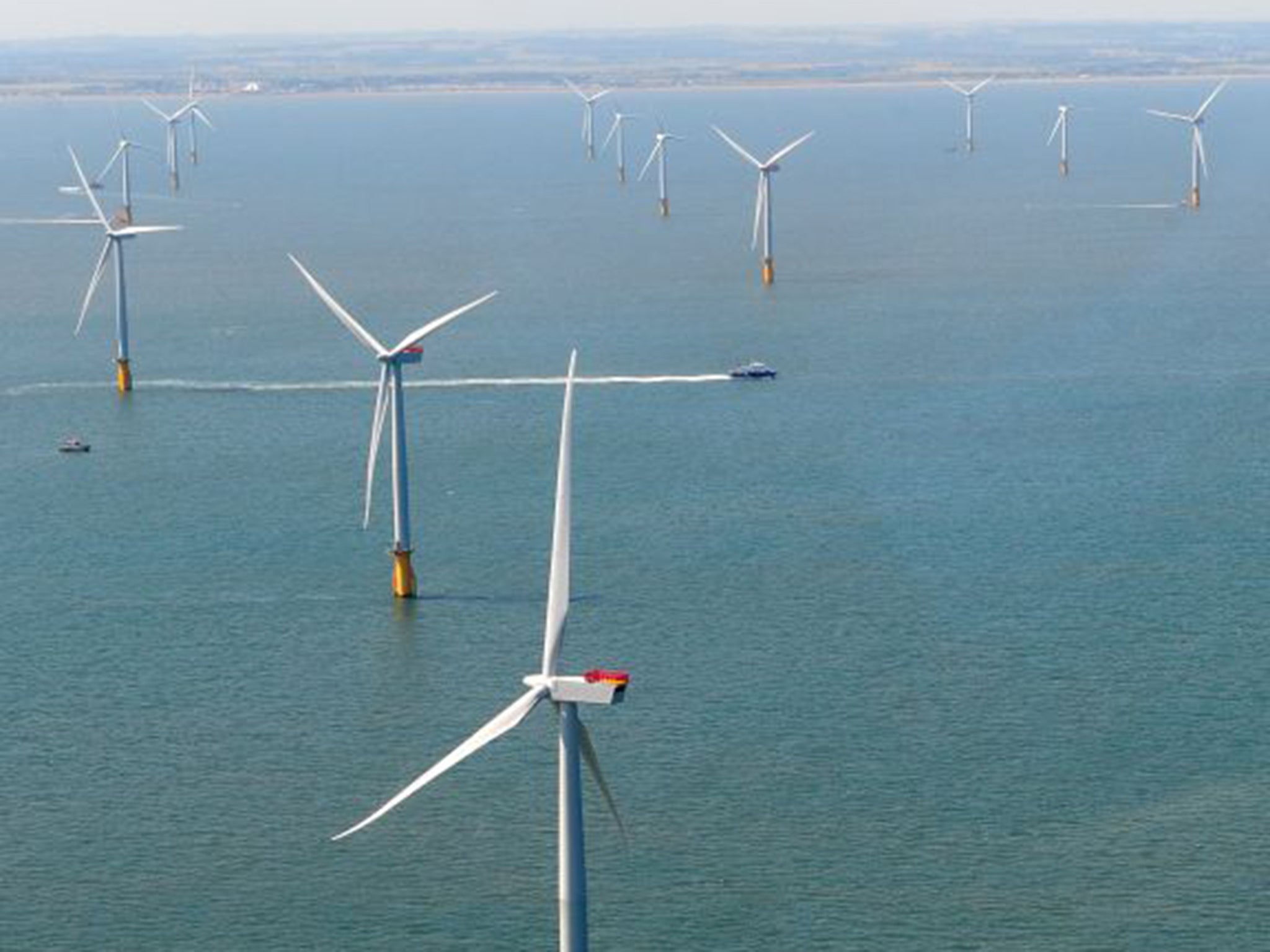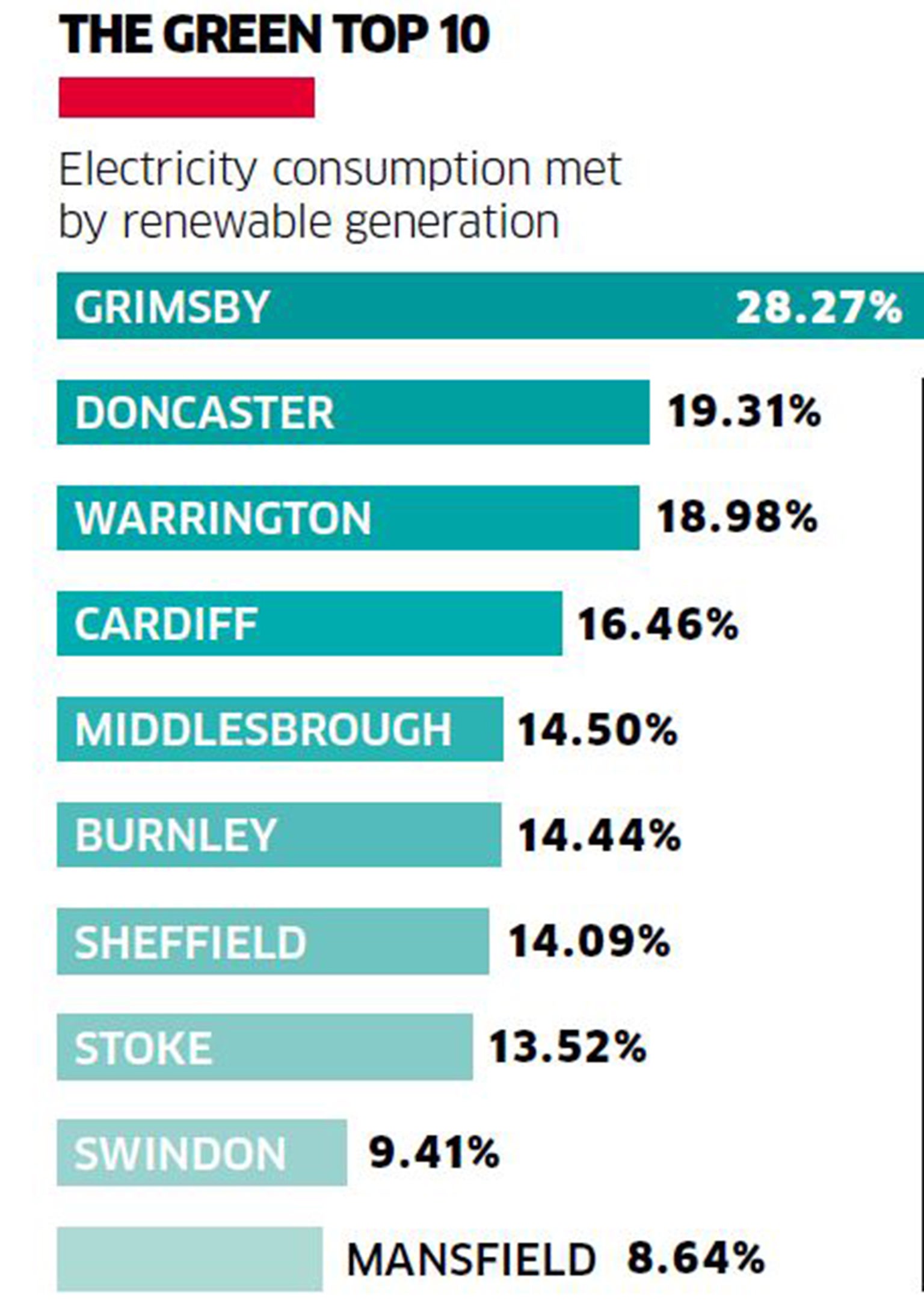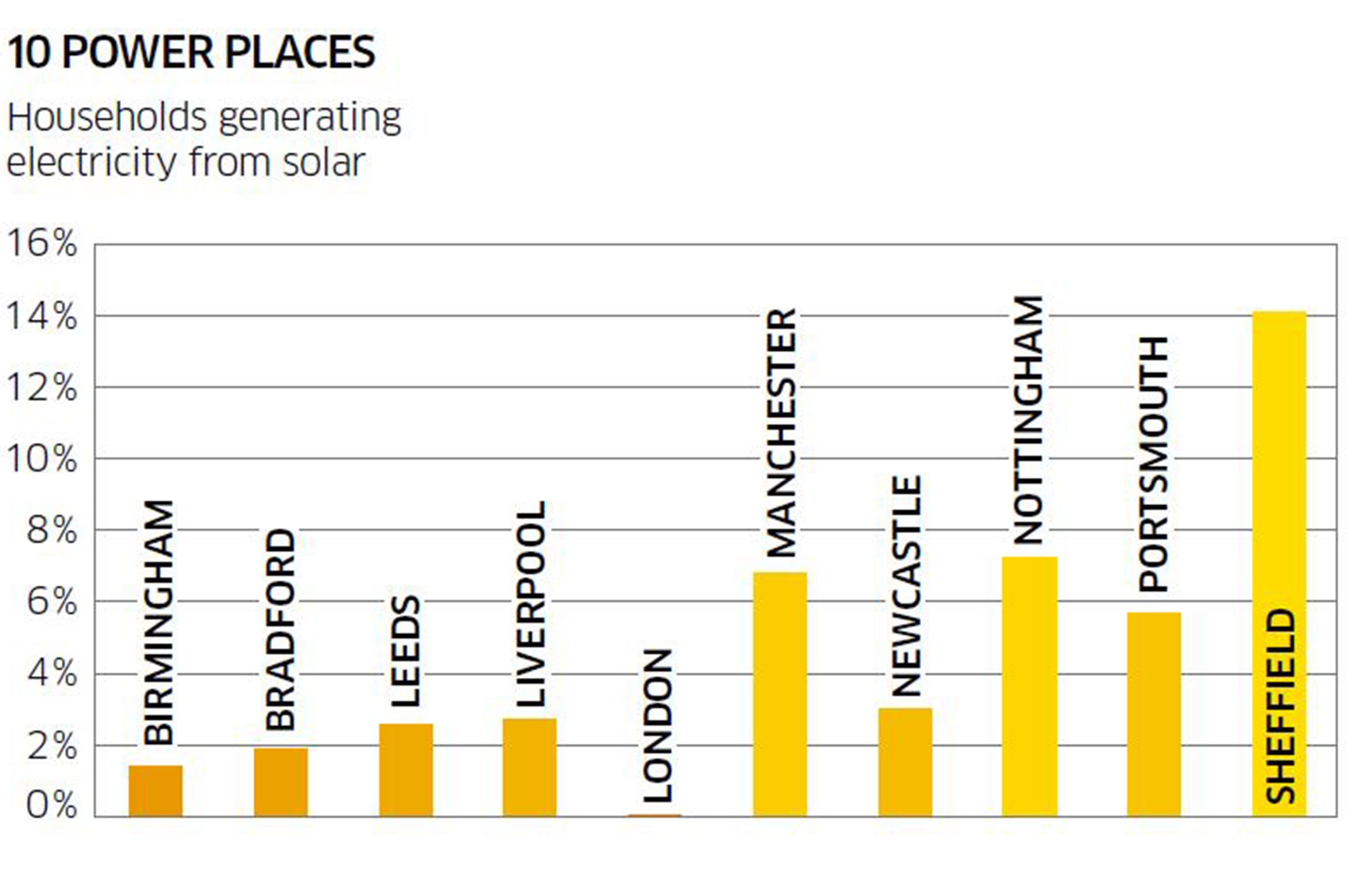Grimsby 'generating more electricity from renewables than anywhere else in England'
It makes an astonishing 28 per cent of the electricity it uses from green sources

Your support helps us to tell the story
From reproductive rights to climate change to Big Tech, The Independent is on the ground when the story is developing. Whether it's investigating the financials of Elon Musk's pro-Trump PAC or producing our latest documentary, 'The A Word', which shines a light on the American women fighting for reproductive rights, we know how important it is to parse out the facts from the messaging.
At such a critical moment in US history, we need reporters on the ground. Your donation allows us to keep sending journalists to speak to both sides of the story.
The Independent is trusted by Americans across the entire political spectrum. And unlike many other quality news outlets, we choose not to lock Americans out of our reporting and analysis with paywalls. We believe quality journalism should be available to everyone, paid for by those who can afford it.
Your support makes all the difference.Once the fishing capital of the world, Grimsby’s fortunes took a turn for the worse in recent decades, leaving a depressed town with one of the highest unemployment rates in the country.
But now it is being reborn as the renewable energy capital of England, generating more electricity from solar, wind, biomass and landfill gas than anywhere else, and creating “new hope” in the area.
It makes an astonishing 28 per cent of the electricity it uses from green sources – much of it from household solar panels and wind turbines, according to new research.
This puts it way ahead of its closest rival – Doncaster, weighing in at a respectable 19 per cent – and makes London, at a minuscule 0.06 per cent, look pathetic. Birmingham doesn’t fare much better, at 1.4 per cent, or Manchester at 6.8 per cent, according to the Green Alliance think-tank.

Although Grimsby might not seem the obvious choice for a green capital – Brighton, with the country’s sole Green Party MP, or technology-obsessed Cambridge may seem more likely candidates – there are plenty of reasons why the town is head and shoulders above the rest.
As an east coast town, it is close to the biggest cluster of offshore wind farms in Europe, which have brought around 1,500 jobs to the area. Most of these are in turbine maintenance, which the population is particularly suited to because its fishing culture means that people know how to sail.
The offshore turbines have not boosted Grimsby’s renewable energy statistics in themselves, because the research excludes sea-based turbines. But they have made local people very well disposed to renewable energy in general, making them far more inclined to put solar panels on their roof, said Chris Holden of the Advanced Industrial Solutions consultancy, who runs a training centre in Grimsby catering for the town’s mushrooming renewable energy industry.
“The offshore wind industry is offering the town new hope. It has breathed new life into the docks and given people an opportunity to celebrate themselves again. And it’s rejuvenated the nightlife, as wind-farm manufacturers – most of them from Denmark – seek out restaurants and pubs,” he said.
“When the fishing industry died a lot of people lost their jobs, but those maritime skills remained in the town. So when the offshore wind farms started to be built, the local newspaper picked up on it, [seeing it] as a way that the town can grow and benefit. They regularly put it on the front page.
“That raised people’s awareness about renewable energy more generally. They started thinking, ‘Oh yeah, that offshore wind renewable energy stuff looks like it’s going well. I want to do well, so why don’t I put solar panels on the roof or invest in solar heating?’”

Grimsby is also helped by its past: heat-generating industries such as fossil-fuel power plants, oil refineries and chemical companies once lined the Humber Bank to make use of its supply of seawater for cooling. This has given the town more than its fair share of engineers and manufacturers – the kind of people who are more likely to install green technology than your average person, commented Mr Holden. “They have taken on the idea that renewable energy saves them money,” he said.
Climate change campaigners have welcomed Grimsby’s early adoption of renewable technology. Laura Taylor, head of advocacy at Christian Aid, said: “We can tackle climate change if enough of us want to. The science is proven. Time is short, but 100 per cent clean energy is well within our reach.”’
Join our commenting forum
Join thought-provoking conversations, follow other Independent readers and see their replies
Comments